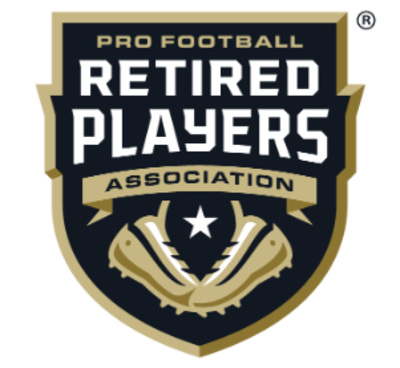
Super Bowl Stories: Dave Robinson
Feb 01, 2019

Photo Credit: Associated Press
The game was big before it was the Big Game.
It fits the milieu of the generation.
The Vietnam War had been dragging on for more than ten years and the Cold War would drag on even longer. The US was two years away from landing the first man on the moon and about one year away from a climax in the Civil Rights Movement. Muhammad Ali was boxing’s heavyweight champ and Frank Robinson was the best player in baseball, in a decade where racial tensions were high.
PFRPA board member, Dave Robinson, was familiar with the fight for equality. Having come out of Linebacker U, playing for collegiate Hall of Fame coaches, Charles “Rip” Engle and Joseph “JoePa” Paterno, Robinson was the first black player to play in the Gator Bowl as a star for Penn State. He faced discrimination even in the hotel where the team was staying, having to eat meals in his room because he wasn’t welcome in the main dining hall.
It wasn’t long after Robinson was drafted by the Green Bay Packers that he had the opportunity to play in the first Super Bowl. He would have to wait much longer to get to the Hall of Fame because it took 50 years for him to get the call for the gold jacket.
Though sacks were not an official stat during his career, #89 was an elite pass rusher with size, speed and strength unique to his era. It was that ability which enabled him to make such plays as the time he hurried Don Meredith to force an interception in the NFL Championship game in 1967, clinching the Packers’ victory and punching their ticket to the showdown versus the AFL champs.
“Dave Robinson was Lawrence Taylor before there was a Lawrence Taylor.”
- Bill Parcells
WHAT MADE IT BIG
There was no love lost between the AFL and the NFL in the ‘60s. It was consensus that the NFL had superior quarterbacking, coaching and overall talent. Lamar Hunt, who owned the Chiefs, had founded the AFL and was hoping the AFL-NFL World Championship Game, as it was called at the time, would validate his newer league.
The U.S. Congress had approved the merger between the two leagues, but in the meantime Hank Stram and Len Dawson, the Chiefs head coach and starting quarterback, respectively, were looking to upset the heavily favored Packers to show that they belong.
More than 50 million people watched the game on two networks, NBC and CBS, in spite of the fact that it was the only Super Bowl that wasn’t a sellout. It was played at the LA Coliseum in beautiful weather, as is typical of Southern California. Each team even played with their footballs from their respective leagues. The Chiefs used a Spalding, and the Packers used a Wilson.
After a somewhat competitive first half, maybe the most entertaining part of Super Bowl 1 was the halftime show featuring the Bell Rocket Air Men and their flying jet packs. Perhaps it was the pigeons, or the balloons. Regardless, gone are the days where the musical performers included marching bands from universities and a 30-second commercial cost $42,000.
“When you play football, you got to like the taste of blood. And you got to remember that 50% of the time, it’s your blood.”
- Dave Robinson at his Hall of Fame induction
The Chiefs came out in the second half of a close game believing they had a chance. It was then that Robinson was involved in what most agree was the game-changing play.
The nose tackle split a double team from the center and left guard and Robinson was flying in from inside the tackle on a blitz. Len Dawson had nowhere to go and nothing to do but to throw up a wobbly pass that got intercepted and returned to the red zone. The ensuing play resulted in a Packers touchdown, which would be the first nail in the Chiefs’ coffin.
Unable to score in the second half and answer the Packers’ 21 straight points, the Chiefs ended up losing 10-35 to Vince Lombardi’s superior squad.
One thing is for sure: it isn’t called the Stram Trophy.
“Winners never quit and quitters never win.”
- Vince Lombardi
Did You Know: “Rip” Engle developed Angleball based off the Native American team sport “anejodi” to keep American World War 2 servicemen fit prior to deployment.




0 Comments